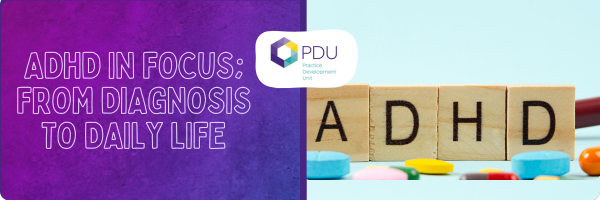
This session was delivered as a webinar via Teams on Thursday 13 February 2025
Part of our Understanding Neurodivergence and Multiple Disadvantage learning series.
Our fourth session in this series was delivered by Dr Blandine French, FHEA, Senior research fellow, School of Psychology and Institute of Mental Health at the University of Nottingham.
The presentation explored the complexities of Attention-Deficit/Hyperactivity Disorder (ADHD), beginning by defining ADHD and understanding its symptoms and diagnostic criteria, and then discussing the profound impact of living with ADHD, including the challenges faced when it goes undiagnosed.
The session also examined how ADHD can lead to multiple disadvantages in various aspects of life. To illustrate these points, a case study was presented that highlights the personal experiences of an individual with ADHD, showcasing both the difficulties and the resilience required to manage the condition.
Materials available to download:
Presentation slides (File type: pdf. Size: 3.22MB)
A recording of the live webinar is available to watch via YouTube. Length: 1 hour 33 minutes.
Watch the video now (click to launch the video in YouTube)